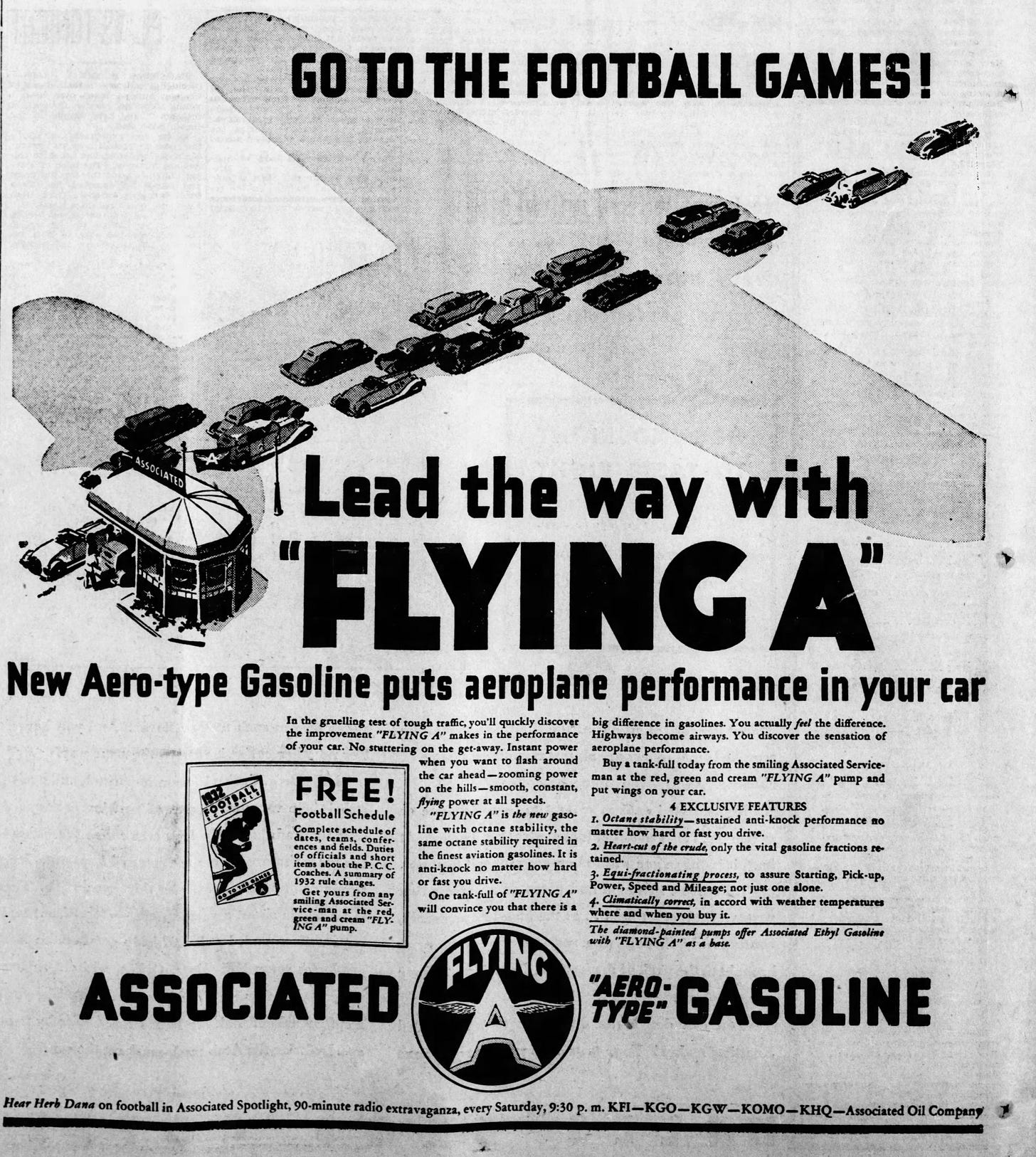Today's Tidbit… Herb Dana and the Associated Football Question Box

Frank Birch, who invented the penalty signals referees perform during football games, was scheduled to referee the 1929 Rose Bowl but tore a knee ligament two weeks before the game and had to step aside. Herb Dana replaced him in that role, resulting in Dana being the one who spotted the ball following the infamous run by Wrong Way Reigels. (California's Roy Riegels had picked up Georgia running back Stumpy Thomason's fumble, got turned around, and ran the ball toward his own end zone before being stopped by teammates inside the one-yard line.)

Like a handful of officials in the game's history who become minor celebrities -choosing all-star teams, predicting the outcome of games, and writing newspaper columns- Dana was among the high-profile officials on the West Coast in 1920s and 1930s.
One of Dana's side gigs was handling football Q&A. He answered reader-submitted questions for the San Francisco Examiner and hosted a 90-minute talk show each week, during which he reviewed recent events and offered insights on upcoming games.
The Smiling Associated Service gasoline chain, which sold Flying A gas, sponsored the radio show. Syndicated across the West, listeners picked up postcards at the local dealer, and mailed their questions to Dana. He answered some on air, but every submitted question received a written response from Dana.

Dana became the Pacific Coast Conference Commissioner of Officials in 1933 and received credit for emphasizing physical conditioning of officials and encouraging them to wear the new black-and-white striped shirts. He also served on the NCAA football rules committee.
Football Archaeology is reader-supported. Click here to buy one of my books or otherwise support the site.



